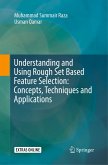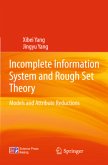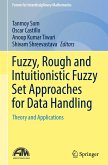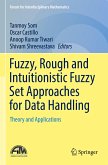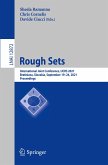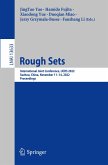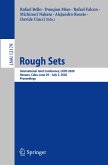This book provides a comprehensive introduction to rough set-based feature selection. Rough set theory, first proposed by Zdzislaw Pawlak in 1982, continues to evolve. Concerned with the classification and analysis of imprecise or uncertain information and knowledge, it has become a prominent tool for data analysis, and enables the reader to systematically study all topics in rough set theory (RST) including preliminaries, advanced concepts, and feature selection using RST. The book is supplemented with an RST-based API library that can be used to implement several RST concepts and RST-based feature selection algorithms.
The book provides an essential reference guide for students, researchers, and developers working in the areas of feature selection, knowledge discovery, and reasoning with uncertainty, especially those who are working in RST and granular computing. The primary audience of this book is the research community using rough set theory (RST) to perform feature selection (FS) on large-scale datasets in various domains. However, any community interested in feature selection such as medical, banking, and finance can also benefit from the book.
This second edition also covers the dominance-based rough set approach and fuzzy rough sets. The dominance-based rough set approach (DRSA) is an extension of the conventional rough set approach and supports the preference order using the dominance principle. In turn, fuzzy rough sets are fuzzy generalizations of rough sets. An API library for the DRSA is also provided with the second edition of the book.
The book provides an essential reference guide for students, researchers, and developers working in the areas of feature selection, knowledge discovery, and reasoning with uncertainty, especially those who are working in RST and granular computing. The primary audience of this book is the research community using rough set theory (RST) to perform feature selection (FS) on large-scale datasets in various domains. However, any community interested in feature selection such as medical, banking, and finance can also benefit from the book.
This second edition also covers the dominance-based rough set approach and fuzzy rough sets. The dominance-based rough set approach (DRSA) is an extension of the conventional rough set approach and supports the preference order using the dominance principle. In turn, fuzzy rough sets are fuzzy generalizations of rough sets. An API library for the DRSA is also provided with the second edition of the book.


